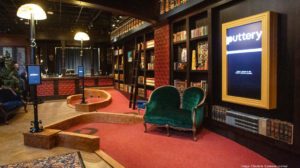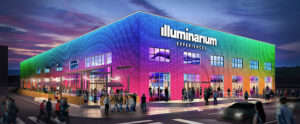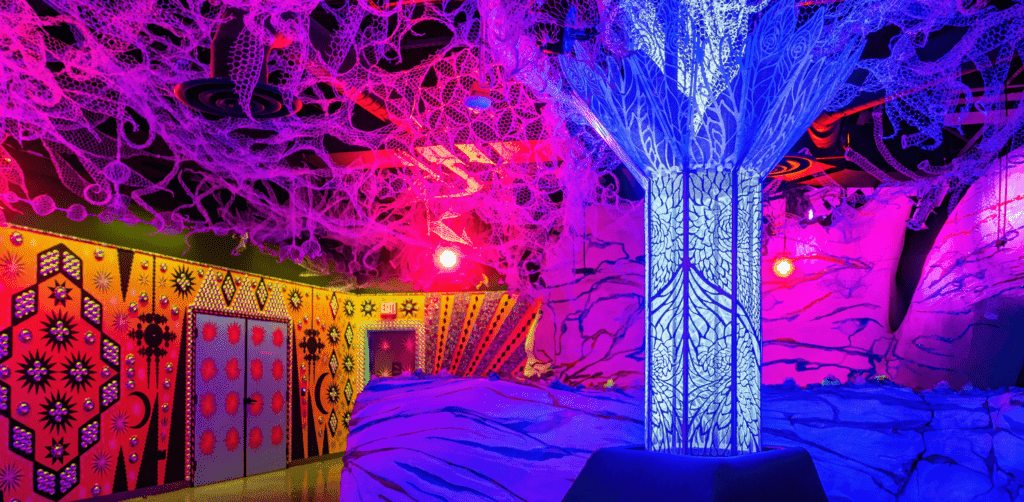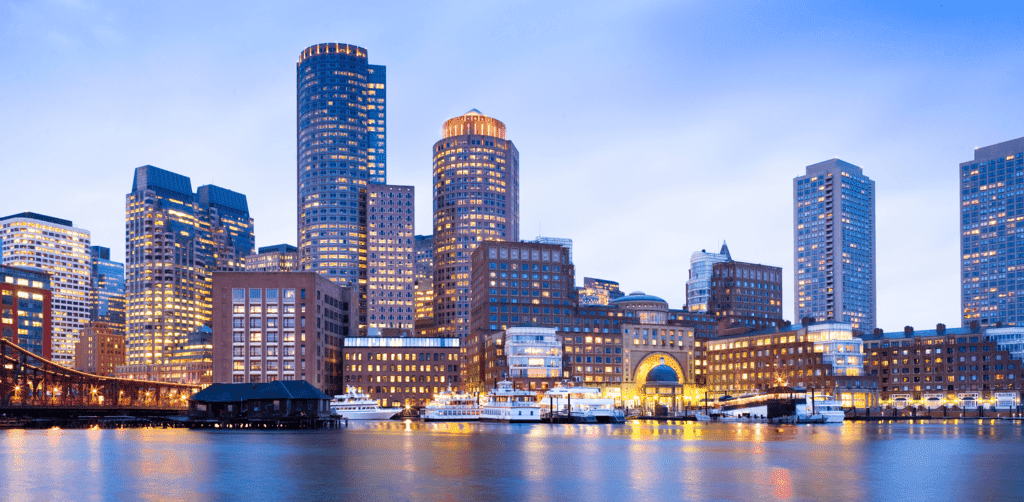The 2022 conference schedule kicked off with the 7th annual Entertainment Experience Evolution Conference in Los Angeles. We were fortunate enough to be able to attend the 6th annual conference in March 2020 and shared our thoughts here. Of course we all know the rest of the story…
The much-hyped concepts from two years ago could have easily melted away given the situation. However, rather than sit with their heads in their hands, these incredibly creative entrepreneurs steered into the skid, with many continuing to open concepts in the midst of Covid, buoyed by the confidence that customers would return. So far, this faith appears to be rewarded.
Additionally, two years of innovation have completely transformed the experience industry from a technological standpoint. Advancements have enhanced the offering from “Competitive Socializing” concepts, while experience-themed venues have gone from physical to phygital, blurring the lines of the brick & mortar world with that of the metaverse. Vendors have found ways to monetize everything in the phygital world from clothing to real estate. Virtual reality meets virtual realty.

We’ve moved way beyond trampoline parks…
Competitive Socializing

While a unique theme is the initial draw, the atmosphere, food, and creative cocktails are what will keep the date nights, bachelorette parties, and corporate team-building clients coming back. In each of these concepts, technology is a differentiating factor. It allows operators to efficiently vary and rotate their content, leading to new experiences and more reasons for return visits. For years, restaurants have been a sought-after category for shopping center owners to help drive traffic and expand trade areas. These concepts are the next generation of that idea, combining technology and a unique experience with the draw of food and drink.
Immersive Art is the hot new trend
If you are looking for a trend that will simply draw people to a center or area, Immersive Art, which has been transformed by advancements in tech, is one option to consider. Meow Wolf emerged from a small collective of Santa Fe artists to become a mega hit, drawing more than 1 million annual visitors, a 9-figure valuation, and two new locations in Las Vegas and Denver.

So what does this mean for retail landlords?
The so-called “competitive socializing” concepts, while individually new, are a subcategory of the larger and more familiar hospitality industry. Attracting them to your project will require a strong trade area throughout the major day parts, including tourist and office population. They can offer something unique and different from competing centers, but make sure you understand going in how unique is too unique (how about a cricket-themed venue?). Bringing one of these operators to your center can give you a leg up on the competition and help expand your overall trade area. Additionally, these deals are more closely aligned with traditional restaurant deals and the operators more often than not have prior hospitality experience. These factors serve to make the deal-making much more familiar to both sides, even if a concept may seem a bit “out there.”
Interested in immersive art however? Well, Meow Wolf is not likely coming to your shopping center. In fact, many of these concepts are striving for unique and often purpose-built buildings. However, it’s not impossible to lure an attraction like these to a traditional retail setting. Seismique, for example, took 40,000 SF of a former Bed Bath & Beyond in Houston. The size and openness of many big-box spaces work quite well to give these artists the room they need to design their experiences. Inspired by the success of these pioneers, we expect to see dozens of new concepts sprout in markets across the country. While each vision may be different, the early success of these operators suggests that they may be in a position to occupy real estate which may be otherwise challenging for retail.
Of course, making the deal is the difficult part. Beyond “immersive” the other refrain we heard quite a bit was “partnership.” Any landlords who have been down this road know this is a euphemism for Tenant Improvement Allowance and Capital Expenditures. While many of these concepts have proven that success is possible, this is still very much an emerging industry which will have winners and losers. The technological investment alone is far beyond any traditional concepts and is not reusable for future tenants. Further, we still need time post-pandemic to prove that these exhibits can stay fresh and continue to draw the crowds necessary to generate ROI. Early returns are encouraging with some concepts projecting to draw 1 million annual visitors at ticket prices ranging from $25-$45. We’re watching to see if that trend will hold up as more locations open and compete for leisure dollars.
Increased foot traffic is often the hook to lure a landlord into one of these deals. Yet these concepts are so new that there are no case studies or other evidence to suggest that they are enhancing or expanding a trade area beyond existing draw such that it justifies the investment. Instead, advocates point to certain centers being left behind the changing times. “What kind of place do they want their shopping centers to be?” Experiential, immersive concepts may very well be the next iteration of placemaking, separating gathering places from shopping centers. But they are more likely to be a solution for places like struggling regional malls with large blocks of available space and plenty of room to be re-imagined.
Regardless of if one of these attractions lands in your neighborhood, it is quite interesting to see this evolution of placemaking and experience blending into the traditional retail world. We’re certainly excited about what the coming months may bring as customers return and technology advances.




